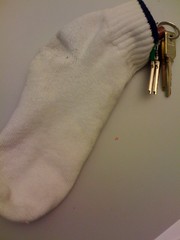I finished the novel Empire, by Orson Scott Card, a couple months ago and had been meaning to write a review of it, or at least a commentary on it, since then. At this point, enough time has passed by that I'll not be including very much in the way of specific details from the book, though there will be some spoilers.
I think the title above succinctly sums up the book in a variety of ways. Let's start with what would typically be a minor point, since I doubt Card approved it. On the other hand, I generally look to the blurbs to give me some idea of a book's content, and thus a false and misleading blurb is something that will lead me to be less likely to buy other books from the same publisher. In a perverse way, the blurb is representative of the book -- not in terms of factual information, but in terms of being thinly masked propaganda.
So, what does the blurb say? Here it is:
The American Empire is growing too fast, and the fault lines at home are stressed to the breaking point. The war of words between Right and Left has collapsed into a shooting war, though most people just want to be left alone.The battle rages between the high-technology weapons on one side and militia foot soldiers on the other, devastating the cities and overrunning the countryside. But the vast majority, who only wan tht killing to stop and the nation to return to more peaceful days, have technology, weapons, and strategic geniuses of their own.
When the American dream shatters into violence, who can hold the people and the government together? And which side will you be on?
So, I (naturally, I think) expected a cautionary tale set in the near future, with an imperial America, a civil war between extremists, and presumably a protagonist representing a large middle. Instead, what the reader gets is a political polemic in which all liberals (which, true to ultra-right-wing usage, is equated with extremism) are evil. Even the right wing "side" of the war ends up being (spoilers start here) a head fake by liberals. There's a token "good Democrat"; you know she's good because she sides with the Republicans.
What are we left with? A grand conspiracy to take over the government financed by a thinly-disguised George Soros character. A Bond-like secret headquarters underneath an island in a lake. The liberal conspirators have all sorts of neat, futuristic weapons, but their soldiers are all effete and unskilled (and sneaky backstabbers), eventually bested by virile, right-thinking true Americans (in fact, for some reason I either remember or misremember the liberal soldiers as being foreigners). Card making fun of Armand Hammer's name. A smattering of decent dialog and action. Some mild criticism of Fox News.
And then, to top off my disappointment, there's an angry diatribe written by the author at the end. Apparently, he's pissed off at criticism of his views. He rails against people seeking to rob him of his livelihood, though it's unclear to me that his income has in any major way been affected: he only makes the case for being excluded from SF conventions and the like. He doesn't mention his support for intelligent design as science, which I mention not as a religious comment but as a rather embarrassing lack, in a hard science fiction writer, of basic understanding of what science is.
What is apparent in his essay is that Card is one of those people who for some reason feel that their lives are affected, somewhat like action-at-a-distance, but the unrelated actions of others. Actually, not just their actions, but even their ability to act. In particular, he somehow thinks that the ability for people to marry others of the same sex affects the quality of his own marriage. His protestations aside, I fail to see the difference between this and opposition to interracial marriages. Some people just can't seem to let others live their own lives in peace, if they disagree with them.
And so, Card's closing essay at once clarifies the polemical nature of this "novel" and identifies him as an extremist, like the antagonists in his writing, who seeks control over other Americans' private lives.






